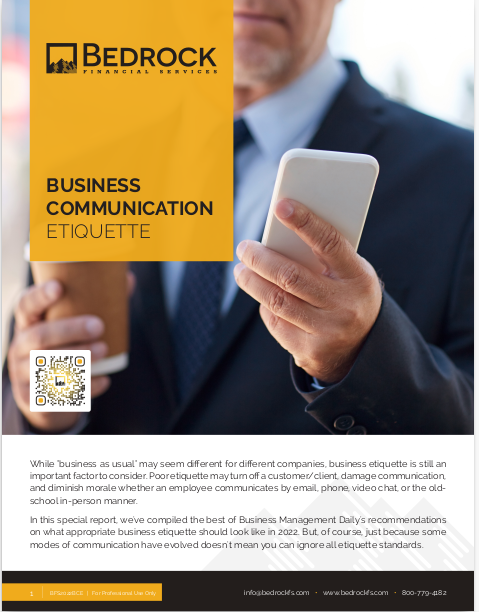Key Takeaways
-
Speaking like every other agent damages your credibility, especially in a trust-starved market. Your voice and message must feel real, not rehearsed.
-
Clients today are more skeptical than ever. To stand out, you must differentiate yourself not with louder promises but with more human, honest communication.
Why Familiar Scripts Feel Fake in 2025
In today’s oversaturated insurance market, clients have heard it all. They’ve been pitched, followed up with, and nudged through identical messaging from dozens of agents. The result? A deep skepticism that kicks in the moment you sound like everyone else.
If your conversation opens with phrases like “just checking in” or “I wanted to touch base,” you’re triggering the same alarm bells as countless other agents. Clients tune out not because your offer isn’t valuable but because it feels like a rerun. Trust dies not from dishonesty but from predictability.
Understand the Client’s Internal Filter
Every client you speak to in 2025 has what can best be described as an internal spam filter. This filter isn’t just for emails. It applies to phone calls, texts, social media messages, and even in-person interactions.
Their brain automatically blocks out anything that feels like it came from a sales template. It’s not that they don’t need coverage. It’s not that they don’t want help. It’s that they’ve become conditioned to distrust anyone who speaks like a script.
To break through that filter, your language must be:
-
Unexpectedly direct without being pushy
-
Conversational, not performative
-
Grounded in the moment, not in memorized talking points
The Rise of Skepticism: A Timeline
Let’s look at how we got here.
-
Pre-2020: Sales language still worked. Clients had more patience. They assumed agents knew more than they did.
-
2020-2023: The pandemic changed everything. Clients became more independent. They researched more and trusted less.
-
2024: AI-generated content flooded inboxes and messages. Clients began to detect and dismiss anything that felt artificial.
-
Now in 2025: The burden of proof is entirely on you. If your communication doesn’t immediately feel human, it gets mentally deleted.
How to Sound Unlike Every Other Agent
What does it take to sound different? It starts by dropping the sales tone. Here are practical ways to shift your approach:
Use Language That Reflects How You Actually Speak
You don’t say “touch base” to your friends. You say, “Just wanted to check if you had a chance to think about it.” Or: “Does that still make sense based on what you’re planning?”
Write and speak the way you talk when you’re off the clock. Clients can tell the difference.
Avoid Echoing Industry Buzzwords
Terms like “comprehensive protection,” “financial peace of mind,” or “tailored solutions” are placeholders. They don’t sound dishonest—they sound lazy. Clients assume if your language is generic, your thinking probably is too.
Replace those phrases with:
-
“Coverage that holds up if your situation changes.”
-
“What you’d want in place if the worst happened.”
-
“Let’s figure out what actually matters to you.”
Reference Their Prior Words
Trust builds when clients feel heard. A simple habit: quote their exact phrasing.
If they said, “I’m worried about paying too much,” reply later with, “You mentioned you don’t want to overpay—this keeps costs lean without stripping away the essentials.”
Their words show up in your response. That’s what trust sounds like.
Personalization Isn’t a CRM Field
The mistake many agents make is assuming personalization equals auto-filling a name or referencing a birthday. But clients spot automated familiarity immediately.
Real personalization means:
-
Referring to a previous conversation with detail
-
Bringing up something unique they told you
-
Adjusting your tone to match theirs (formal, casual, cautious, confident)
You want them to feel like you remembered them, not that a system did.
When You Sound Human, You Sound Safe
Insurance is, at its core, a fear-based purchase. Clients don’t just want to buy a policy—they want to feel that if something bad happens, someone will actually be there.
You can’t sound like you care unless you actually do. And if you do, it should show up in your tone, your pauses, your follow-up questions. It shows up in whether your message sounds like it was written for them, or copied for everyone.
Sounding Different Also Means Asking Differently
Most agents ask:
-
“What concerns do you have?”
-
“Have you thought about your future needs?”
Those are fine questions, but they’re designed for comfort, not clarity.
Instead, try:
-
“If something unexpected happened next week, what would you regret not having in place?”
-
“Has anyone close to you ever had to rely on their insurance? How did that go?”
Those are real questions. Real questions create real trust.
Stop Trying to Impress. Try to Connect.
It’s tempting to prove your knowledge with statistics, designations, and years of experience. But in this market, credibility doesn’t come from titles. It comes from how you make clients feel.
A confident tone, a sincere question, and a willingness to pause and listen communicates more trust than a string of credentials.
In 2025, people don’t hire agents for their resumes. They hire agents for their presence.
Tone Is Everything. And It’s Hard to Fake.
You can’t just say you’re different. Your tone must show it. Here’s how to evaluate your tone:
-
Does your message feel like it was sent to one person only?
-
Could a friend read it and know it was truly you?
-
Does your follow-up feel like an actual continuation of the last conversation, not a restart?
If the answer isn’t yes, revise. Clients can’t always explain why they don’t trust you—they just feel it.
Matching Modern Expectations
In 2025, trust doesn’t build over time by default. It builds through frictionless, intentional interaction.
What clients expect now:
-
Speed, but not rush
-
Detail, but not overload
-
Confidence, but not arrogance
-
Simplicity, but not dumbing down
Your communication needs to live at that intersection. The moment you lean too far in any one direction, the connection weakens.
Don’t Just Try to Be Liked. Be Understood.
You don’t need everyone to like you. But you need the right people to get you.
That means:
-
Not using overly formal or corporate-speak if it isn’t your natural voice
-
Not softening every truth to avoid discomfort
-
Not diluting your message so much that it disappears
Speak in a way that makes clients say, “Finally. Someone who gets it.”
When You Speak Clearly, You Attract Better Clients
There’s a hidden benefit to not sounding like every other agent: the right people recognize you faster. The right people trust you sooner. And the wrong ones move on.
Clarity repels the wrong clients just as powerfully as it attracts the right ones. That’s not a loss. That’s alignment.
Make Your Message Match Your Mission
You didn’t get into this business to mimic someone else’s pitch. So don’t. Your words should reflect your mission—not the industry’s marketing playbook.
Speak in a way that feels like you mean it.
That’s how you keep trust alive.
Speak Like You Mean It—And Let Us Help You Scale That
If you want to grow in 2025, your message has to feel unmistakably yours. At Bedrock Financial Services, we help insurance professionals like you develop a voice that clients remember—and systems that help you deliver it consistently.
Our training, CRM tools, and client communication strategies are built to enhance trust, not automate it away.
Let’s help you sound like you, only sharper.
Sign up with Bedrock Financial Services to start standing apart in a world where sounding the same is the fastest way to be forgotten.







